2017 SkS Weekly Climate Change & Global Warming Digest #32
Posted on 13 August 2017 by John Hartz
Story of the Week... Editorial of the Week... Toon of the Week... Quote of the Week... SkS in the News... Photo of the Week... SkS Spotlights... Video of the Week... Reports of Note... Coming Soon on SkS... Poster of the Week... Climate Feedback Reviews... SkS Week in Review... 97 Hours of Consensus...
Story of the Week...
Reporting on the State of the Climate in 2016
International report confirms 2016 was third consecutive year of record global warmth
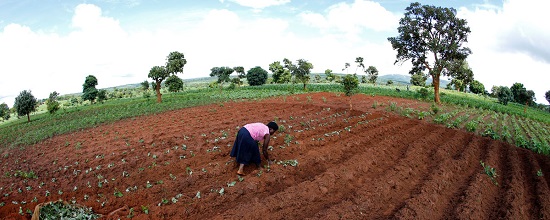
Malawian Subsistence Farmer, Reuters, Mike Hutchings
A new State of the Climate report confirmed that 2016 surpassed 2015 as the warmest year in 137 years of recordkeeping.
Major indicators of climate change continued to reflect trends consistent with a warming planet. Last year’s record heat resulted from the combined influence of long-term global warming and a strong El Niño early in the year. The report found that the major indicators of climate change continued to reflect trends consistent with a warming planet. Several markers such as land and ocean temperatures, sea level, and greenhouse gas concentrations in the atmosphere broke records set just one year prior.
These key findings and others are available from the State of the Climate in 2016 report released online today by the American Meteorological Society (AMS).
The 27th annual issuance of the report, led by NOAA National Centers for Environmental Information, is based on contributions from nearly 500 scientists from more than 60 countries around the world and reflects tens of thousands of measurements from multiple independent datasets. It provides a detailed update on global climate indicators, notable weather events, and other data collected by environmental monitoring stations and instruments located on land, water, ice, and in space.
The report’s climate indicators show patterns, changes, and trends of the global climate system. Examples of the indicators include various types of greenhouse gases; temperatures throughout the atmosphere, ocean, and land; cloud cover; sea level; ocean salinity; sea ice extent; and snow cover.
Reporting on the State of the Climate in 2016, NOAA's National Centers for Environmental Information, Aug 10, 2017
Related Links
- Full State of the Climate in 2016 Report
- 2016 State of the Climate Visual Highlights
- Additional Materials
Editorial of the Week...
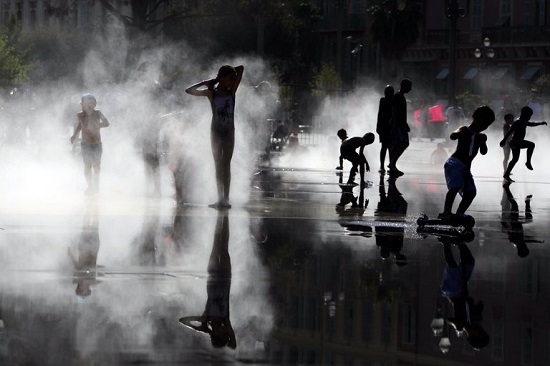
Summers are getting hotter and street fountains can provide only so much relief. Credit Eric Gaillard/Reuters
“It’s Not Your Imagination: Summers Are Getting Hotter.” So read a recent headline in The Times, highlighting a decade-by-decade statistical analysis by climate expert James Hansen. “Most summers,” the analysis concluded, “are now either hot or extremely hot compared with the mid-20th century.”
So what else is new? At this point the evidence for human-caused global warming just keeps getting more overwhelming, and the plausible scenariosfor the future — extreme weather events, rising sea levels, drought, and more — just keep getting scarier.
In a rational world urgent action to limit climate change would be the overwhelming policy priority for governments everywhere.
But the U.S. government is, of course, now controlled by a party within which climate denial — rejecting not just scientific evidence but also obvious lived experience, and fiercely opposing any effort to slow the trend — has become a defining marker of tribal identity.
The Axis of Climate Evil, Op-ed by Paul Krugman, New York Times, Aug 11, 2017
Toon of the Week...
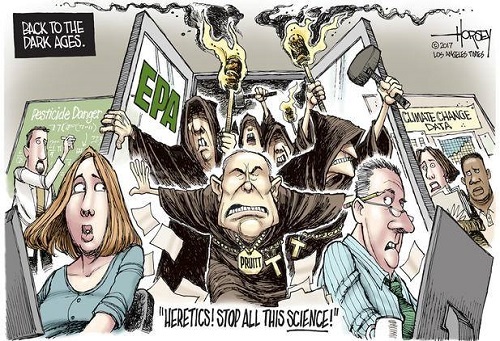
Quote of the Week...
According to the Army Corps of Engineers, 31 Alaskan communities face “imminent” existential threats from coastline erosion, flooding and other consequences of temperatures that are rising twice as quickly in the state as the global average. A handful – Kivalina, Newtok, Shishmaref and Shaktoolik – are considered in particularly perilous positions and will need to be moved.
“It was clear from the start of the Trump administration that there was no interest in helping Alaskan communities, particularly coastal communities, adapt to climate change,” said Victoria Hermann, president of the Arctic Institute.
“There’s now no liaison from Washington on the issue. The biggest loss has been momentum. It feels like the Obama administration was kickstarting something useful but now it has dropped dead.”
Alaskan towns at risk from rising seas sound alarm as Trump pulls federal help by Oliver Milman, Guardian, Aug 10, 2017
SkS in the News...
The bog post, Scientific Consensus isn’t a “Part” of the Scientific Method: it’s a Consequence of it by The Credible Hulk links to Peter Jacob's Denial101x lecture about knowledge-based consensus and this SkS graphic:
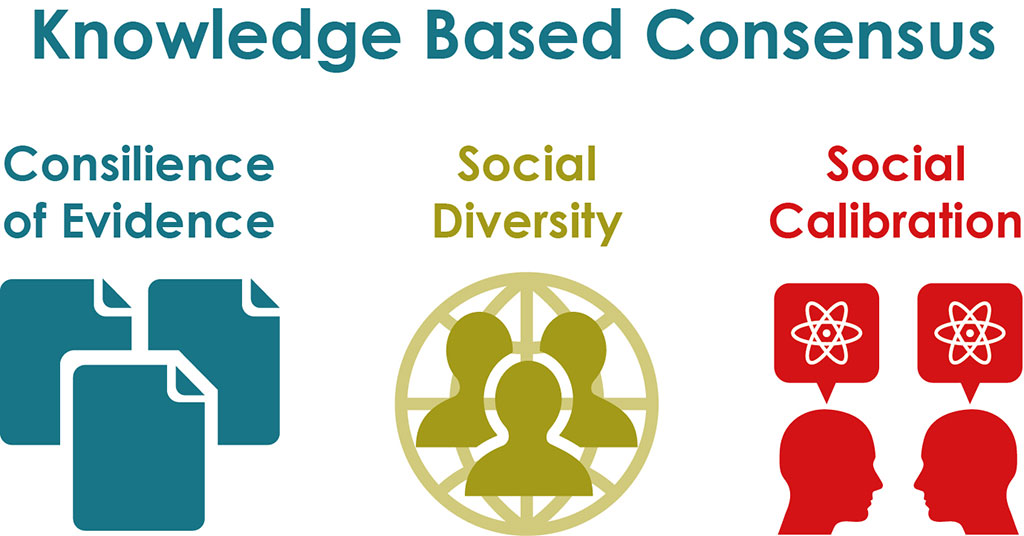
SkS Spotlights...
Established in 2011, The Arctic Institute is an independent, nonprofit 501(c)3 tax-exempt organization headquartered in Washington, D.C with a network of researchers across the world. We envision a world in which the diverse and complex issues facing Arctic security are identified, understood, and innovatively resolved. Rigorous, qualitative, and comprehensive research is the Institute’s core for developing solutions to challenges and injustices in the circumpolar north.
The Arctic Institute’s mission is to help shape policy for a secure, just, and sustainable Arctic through objective, multidisciplinary research of the highest caliber. Our research agenda is constantly evolving to reflect a rapidly changing Arctic. Institute projects, publications, and events span the most pertinent security issues of the circumpolar region, developed by direct engagement and collaboration with young scholars, emerging regional actors, and northern communities. We provide data, analysis, and recommendations to policymakers, researchers, the media, and the interested public about circumpolar security challenges. Beyond our work, the Institute is building the future of Arctic research through partnerships with organizations across the globe.
We are a think tank for the 21st Century. Our network of multidisciplinary scholars work in North America, Scandinavia, and continental Europe and represent expertise in many different disciplines. Together, we are dedicated to research of and engagement in the many dimensions of Arctic security.
Video of the Week...
A visit to tipping points across the globe, as experts examine the latest evidence to determine the facts about global warming.
Global Warming, What You Need To Know, with Tom Brokaw, Climate State/YouTube Video, March 26, 2017
Coming Soon on SkS...
- Yale climate effort a world leader (John Abraham)
- Problems for oil (Riduna)
- Factcheck: Lord Lawson’s inaccurate claims about climate change on BBC Radio 4 (Carbon Brief)
- Why the 97% climate consensus is important (Dana, John Cook, Sander van der Linden, Ed Maibach, Tony Lieserowitz)
- ClimateChats: Climate Pictures (Adam Levy)
- 2017 SkS Weekly Climate Change & Global Warming News Roundup #33 (John Hartz)
- 2017 SkS Weekly Climate Change & Global Waming Digest #33 (John Hartz)
Poster of the Week...
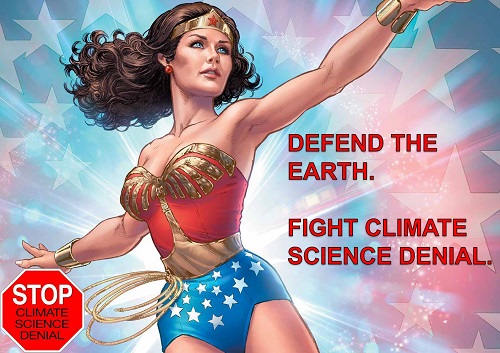
Climate Feedback Reviews...
Climate Feedback asked its network of scientists to review the article, Global Ocean Circulation Appears To Be Collapsing Due To A Warming Planet by Trevor Nace, Forbes, Aug 3, 2017
Three scientists analyzed the article and estimated its overall scientific credibility to be ‘high’.
A majority of reviewers tagged the article as: Accurate.
Review Summary
This article at Forbes describes a study on the possible influence of Arctic sea ice loss on recent changes to a key portion of ocean circulation in the Atlantic Ocean. This Atlantic Meridional Overturning Circulation (AMOC) transports heat around the North Atlantic, but could be slowing down as a result of climate change, with consequences for regional temperatures in Europe and eastern North America.
Scientists who reviewed the article found that it accurately summarized research on the topic of the AMOC. However, the headline used stronger wording than the article, stating that “global ocean circulation appears to be collapsing due to a warming planet”. That is misleading, as this research is analyzing a weakening of the circulation pattern, but not something as extreme as a “collapse”.
Forbes article accurately describes research on Atlantic ocean circulation weakening, but headline goes farther, Climate Feedback, Aug 9, 2017
SkS Week in Review...
- 2017 SkS Weekly Climate Change & Global Warming News Roundup #32 by John Hartz
- The year Trump was elected was so hot, it was one-in-a-million by Dana Nuccitelli (Climate Consensus - the 97%, Guardian)
- SkS Resources - Easy to remember Short URLs by BaerbelW
- Global weirding with Katharine Hayhoe: If I just explain the facts, they'll get it, right?, Video by KTTZ Texas Tech Public Media
- Fossil fuel subsidies are a staggering $5 tn per year by John Abraham (Climate Consensus - the 97%, Guardian)
- 2017 SkS Weekly Climate Change & Global Warming Digest #31 by John Hartz
97 Hours of Consensus...
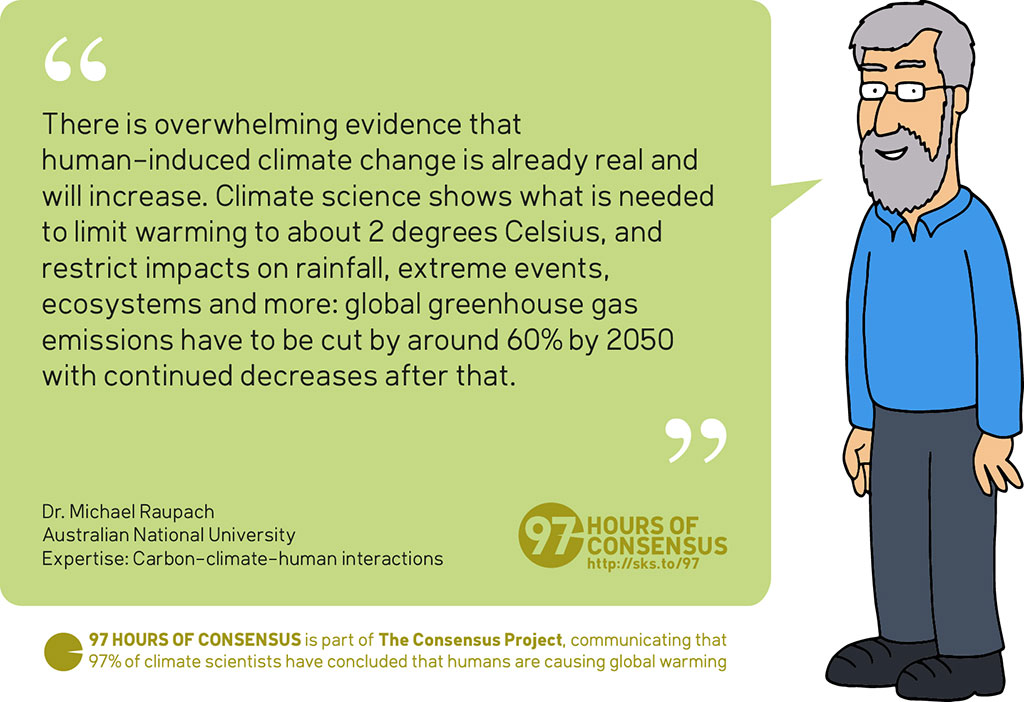
Quote shortened from:
"There is overwhelming evidence that human-induced climate change is already real and will increase. Climate science shows what is needed to limit warming to about 2C, and restrict impacts on rainfall, extreme events, ecosystems and more: global greenhouse gas emissions have to be cut by around 60% by 2050 (80% for Australia) with continued decreases after that."
High resolution JPEG (1024 pixels wide)
Michael Raupach passed away on February 10, 2015. You can read a tribute to him here: https://theconversation.com/mike-raupach-the-scientist-who-tallied-the-worlds-carbon-budget-37575































 Arguments
Arguments






























SYD temp 20|C warmer than average, so absurd temps are coming not only to arctic but also elsewhere, in this case even to my backyard.
Deniers will of course say that it's fine to have a warm suthern winter, no matter what the arguments. The arguments being: such anomaly can bring ecological disaster, e.g. vectors of tropical diseases.
I've never seen Earth being prtrayed as sexy warrior woman as in today's poster and don't know what to think of it.
I think it feels accurate because the planet is remarkably resilient (far more resilient than the civilisation that wants to destroy its ecosystems) and its long term negative feedbacks (rock weathering) will prevent runaway climate change.
But I don't know what effect that image will have on an average selfish person, especially a silly denier.
[JH] The woman in the Poster of the Week is Wonder Woman, a famous US comic book hero who has also been portrayed on TV and in movies. It's a good thing to have super heroes defending the Earth.
As if by confirmation of my earlier post about super-warm southern winter:
NASA shocker: Last month was hottest July, and hottest month, on record